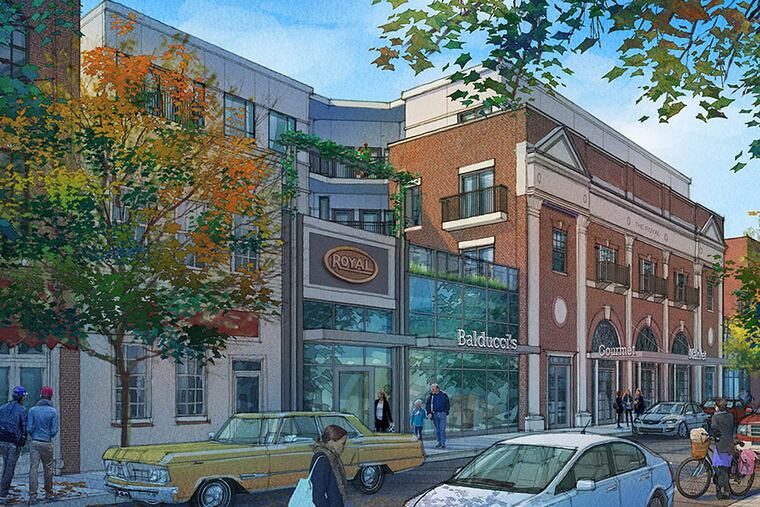Panel OKs plans to demolish historic Royal Theater
Historical Commissions architectural committee approved design plans for a mixed-use retail and residential building at the South Street landmark.

FINALLY, THERE may be life once again at the old Royal Theater on South Street near 16th, vacant and mostly neglected for more than 40 years.
But the new life will come only after the planned demolition of the original building.
The Royal was built in 1919 in the classical-revival style by architect Frank E. Hahn and opened in 1920 as one of the first movie theaters for Philadelphia's black residents.
It also was an important performance venue for such musical talents as Fats Waller and Bessie Smith.
At a meeting yesterday of the architectural committee of the Philadelphia Historical Commission, representatives of neighborhood and business organizations supported the new design plans.
"We think it's the best real proposal we've seen in 30 years," said Jim Campbell, a member of both the South Street West Business Association and the South of South Neighborhood Association (SOSNA).
Plans call for a ground-floor retail space that is likely to include an upscale food market with 45 rental apartments above and behind the retail space.
There would be two stories of retail space, a residential lobby on South Street and four stories of residential units facing Kater Street.
Because the Royal is on the city's Register of Historic Places, the commission must approve any demolition plans.
The new plans were presented by Dranoff Properties, which is working with Universal Companies, a development firm owned by Kenny Gamble, who co-founded Philadelphia International Records in 1971.
The Royal Theater closed in 1970 after plans for a Crosstown Expressway - that never happened - caused many residents to abandon the neighborhood.
The theater sat empty under threat of demolition for 30 years until Universal bought the property in 2000. But despite Gamble's optimistic plans for a new live-music venue, the theater sat vacant until Gamble joined forces with Carl Dranoff, with whom he has partnered in other developments.
Lauren Vidas, board chairwoman of SOSNA, said the proposed demolition of the Royal had not generated the same outrage as the commission's approval of demolishing the Boyd Theater on Chestnut Street at 19th.
"It is a concrete shell," Vidas said of the Royal. "The only historical aspect of the building is the facade."
Vidas said that while the Royal sat empty for so long, new development has sprung up around it, including restaurants and bars on South Street and residential properties behind the Royal.
"If someone came and asked for support for a live-use [musical] performance venue today, I'm not sure they would get any support," Vidas said. "The nature of the neighborhood has filled in as a strong residential area.
Gamble was not at the meeting yesterday.
The design approval is only the first of several steps that the Dranoff/Universal demolition and rebuilding plan must clear.
Next week, the Historical Commission's hardship committee is scheduled to meet to hear the request for a "financial hardship" application required to demolish historic buildings.
A hardship is awarded when the commission finds no suitable "adaptive reuse" that would require restoring the original building.
Homeowners on Kater Street did not speak at yesterday's hearing but are expected to speak at the hardship meeting next week.
Patrick Grossi, advocacy director of the Preservation Alliance for Greater Philadelphia, which holds an easement to protect the facade, said the current plans would not violate the easement.
"The building is in such poor condition that it's really not a good candidate for some kind of adaptive [reuse] program," Grossi said after the meeting.
"There are portions of the building where the masonry and pointing are gone."
The demolition and rebuilding plans also must be approved by the full commission and by the Pennsylvania Historical and Museum Commission, which granted Universal a $50,000 preservation grant in 2008.